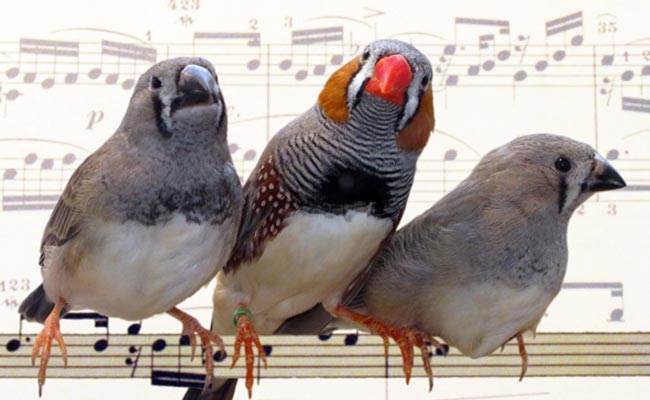Love Songs Bring Pleasure to Bird Brains

Get the world’s most fascinating discoveries delivered straight to your inbox.
You are now subscribed
Your newsletter sign-up was successful
Want to add more newsletters?

Delivered Daily
Daily Newsletter
Sign up for the latest discoveries, groundbreaking research and fascinating breakthroughs that impact you and the wider world direct to your inbox.

Once a week
Life's Little Mysteries
Feed your curiosity with an exclusive mystery every week, solved with science and delivered direct to your inbox before it's seen anywhere else.

Once a week
How It Works
Sign up to our free science & technology newsletter for your weekly fix of fascinating articles, quick quizzes, amazing images, and more

Delivered daily
Space.com Newsletter
Breaking space news, the latest updates on rocket launches, skywatching events and more!

Once a month
Watch This Space
Sign up to our monthly entertainment newsletter to keep up with all our coverage of the latest sci-fi and space movies, tv shows, games and books.

Once a week
Night Sky This Week
Discover this week's must-see night sky events, moon phases, and stunning astrophotos. Sign up for our skywatching newsletter and explore the universe with us!
Join the club
Get full access to premium articles, exclusive features and a growing list of member rewards.
A male bird singing a song directly to a female bird undergoes changes to the dopamine receptors on neurons in his brain that are associated with reward and pleasure.
These changes are similar to those caused by addictive drugs. When a male bird sings a general song not directed at a female, the dopamine receptors are not triggered.
The research, done on 41 adult male zebra finches at the RIKEN Brain Science Institute in Japan, monitored the singing of the birds and found two distinctive types of singing – undirected and directed. The undirected songs, sung by birds when they are alone, follow a pattern filled with variable notes. When a female flies in, however, the singing becomes less variable and the tempo speeds up.
When the "love" song begins, the activation of the bird's dopamine receptors is triggered.
Why do researchers care about bird brain dopamine and the emotional state of male finches? It turns out that the same type of dopamine receptors in human and other animal brains are programmed to have a positive emotional response to rewarding stimuli, such as food or sex, the researchers said.
Earlier studies have shown that in humans, sexual rewards and the rewarding aspects of video games and chocolate can trigger the same type of brain circuits that are firing in the love-struck male finch. And these are the same circuits that are strengthened by such drugs as cocaine or amphetamine in a process that can lead to addiction.
"Despite the distant evolutionary relationship between birds and humans," the researchers said, "it may be that during such intense social interactions as courtship, both share some similar emotional state."
Get the world’s most fascinating discoveries delivered straight to your inbox.
The research was published in the journal Public Library of Science.
- Amazing Animal Abilities
- 10 Amazing Things You Didn't Know about Animals
- Gallery: Birds of Prey
Inside Science News Service is supported by the American Institute of Physics.
 Live Science Plus
Live Science Plus





